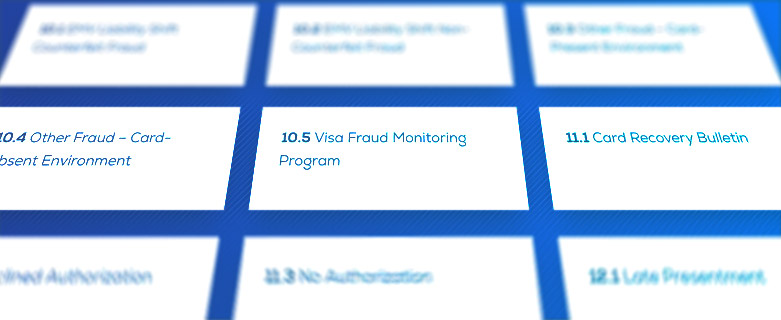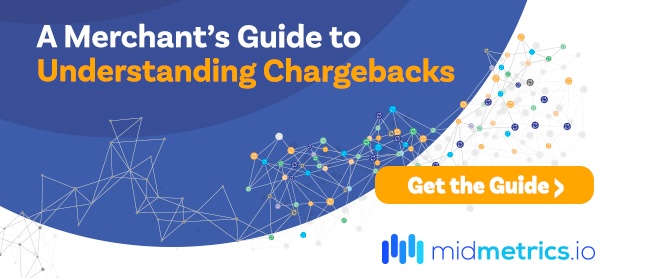News

Chargeback Reason Codes Demystified
Understanding the true meaning of chargeback reason codes is one of the more complex parts of the chargeback representment process. While seemingly straightforward and insightful, chargeback reason codes often only tell part of the story.
There are six key things you need to know to understand chargeback reason codes.
In Some Cases, Chargeback Reason Codes Don't Tell the Full Story
The purpose of reason codes is to help merchants realize the intent of a consumer’s dispute; however, if they are attempting to obtain goods/services for free, they do not provide any meaning. Often, consumers misuse or intentionally abuse the chargeback process to receive free products, which is commonly referred to as “friendly fraud.”
For the most part, consumers are honest, and the reason code their issuing bank assigns on a chargeback is relevant, however friendly fraud is on the rise resulting in a percentage of illegitimate chargebacks.
Below are some examples with reason code descriptions to show how a consumer can use friendly fraud to disguise the true reason they are filing a chargeback:
Merchandise not Received or Cancelled Recurring:
-
Cardholders may use this excuse to obtain the item for free or as a way to cancel their subscription
-
In these cases, it is always prudent to make sure there was no customer service, system or fulfillment issue
Fraud claims
-
Cardholders may use this to “double-dip” by obtaining a refund from the merchant and filing a chargeback on the same day
-
Merchants should require AVS/CVV match-auth code and implement fraud tools which will prevent a percentage of true fraud transactions and enable them to dispute friendly fraud with compelling evidence
With friendly fraud on the rise, merchants need to make sure they provide detailed and comprehensive dispute packets by doing a deep dive into their data. When disputing chargebacks, the reason code assigned by the issuing bank is the only thing available to build your compiling evidence. Thus, it can be challenging to understand what is happening when consumers are charging back. The best way to understand why consumers are requesting chargebacks is to have detailed analytics.
All Reason Codes Are Eligible for Representment
You can challenge any chargeback reason code, even if it’s considered fraud.
If the consumer is legitimately the victim of a crime, then you should do nothing, i.e., accept the chargeback, however in most cases, you can fight it. Of course, if you have already issued a refund for a true fraud transaction, you can challenge the chargeback to prevent the consumer from receiving a duplicate refund.
Don’t let the reason codes define your rules for fighting a chargeback. Representment is almost always an option, and there is no need to sacrifice lost profits.
Thankfully, all the tools and insights you need to manage chargebacks are available at your fingertips with MidMetrics. Protect your merchant accounts and minimize revenue loss with comprehensive dashboards, analytics tools, and more.
Custom Responses Will Yield Higher Win Rates
To dispute chargeback, you need customized templates for each Card Network and their specific reason codes and dispute rules. Unless you have built a system designed to automatically factor in the rules and populate response packets every chargeback you fight, you will need to custom tailor your response to the reason code and circumstances. Knowing which responses will and won’t be accepted is essential in gathering your compelling evidence to fight a chargeback.
There are no one-size-fits-all solutions. However, there is a recipe for success for chargeback representment that will give you the best chance for victory if followed carefully.
The challenging part for many merchants is just not knowing what will work. It is even more challenging for merchants who have a high volume of chargebacks. Handling many individual chargeback representments can be a daunting task, often requiring a full-time person or team to accomplish.
A Chargeback Can Return with a New Reason Code
On occasion, a chargeback can come back again. Typically, the chargeback returns after it has been successfully fought and won. The returning chargeback will come back as a pre-arbitration, which comes with substantial fees to the loser, so most merchants will not continue the dispute process. A returned chargeback generally happens when the consumer is unsatisfied with the original resolution, and either presents additional information, further contention or complains enough for the bank to continue the dispute. This final round of contestation is known as pre-arbitration.
Some Representments Trigger Automatically
On rare occasions, your acquirer will initiate an automatic representment on your behalf. It is crucial to understand which chargeback reason codes qualify for automatic representment by your acquirer. Below are the basic reasons an acquirer responds on your behalf:
-
Retrieval requests
-
Late presentment
-
Compliance
Please note: The above type of chargebacks are uncommon, so merchants still need to manage their revenue recovery plans independently.
Every representment requires the same level of compelling evidence, and automatic representments trigger because the acquirer already has the evidence it needs in their system. For example, if the reason code indicated dispute was filed as the result of a processing error or the consumer disputed the transaction’s processing date.
Reason Codes from Different Credit Cards Have Different Meanings
A lot of the confusion surrounding reason codes stems from the lack of parity across the major credit card brands. Reason code formats and numbering systems differ significantly between card brands, and therefore you should never assume a given reason code shares the same meaning between different brands.
Save Time by Outsourcing Your Chargeback Management
Having a chargeback management solution with the right tools, analytics, and dashboards can save you an enormous amount of time. It would help if you had reliable data, real-time updates, and ways to determine whether your chargeback management is working before it’s too late. MidMetrics can give you the insights you need to reduce your number of chargebacks, grow your revenue, and get your merchant accounts back in order.
Want to learn more about chargeback reason codes? Get the full list of chargeback reason codes from the top 4 major card issuers.
Merchants who want to protect their revenues, merchant accounts and reputations must first take steps to understand what chargebacks are, why they occur, and how the process works. Learn all of this and more in our guide, A Merchant's Guide to Understanding Chargebacks.


